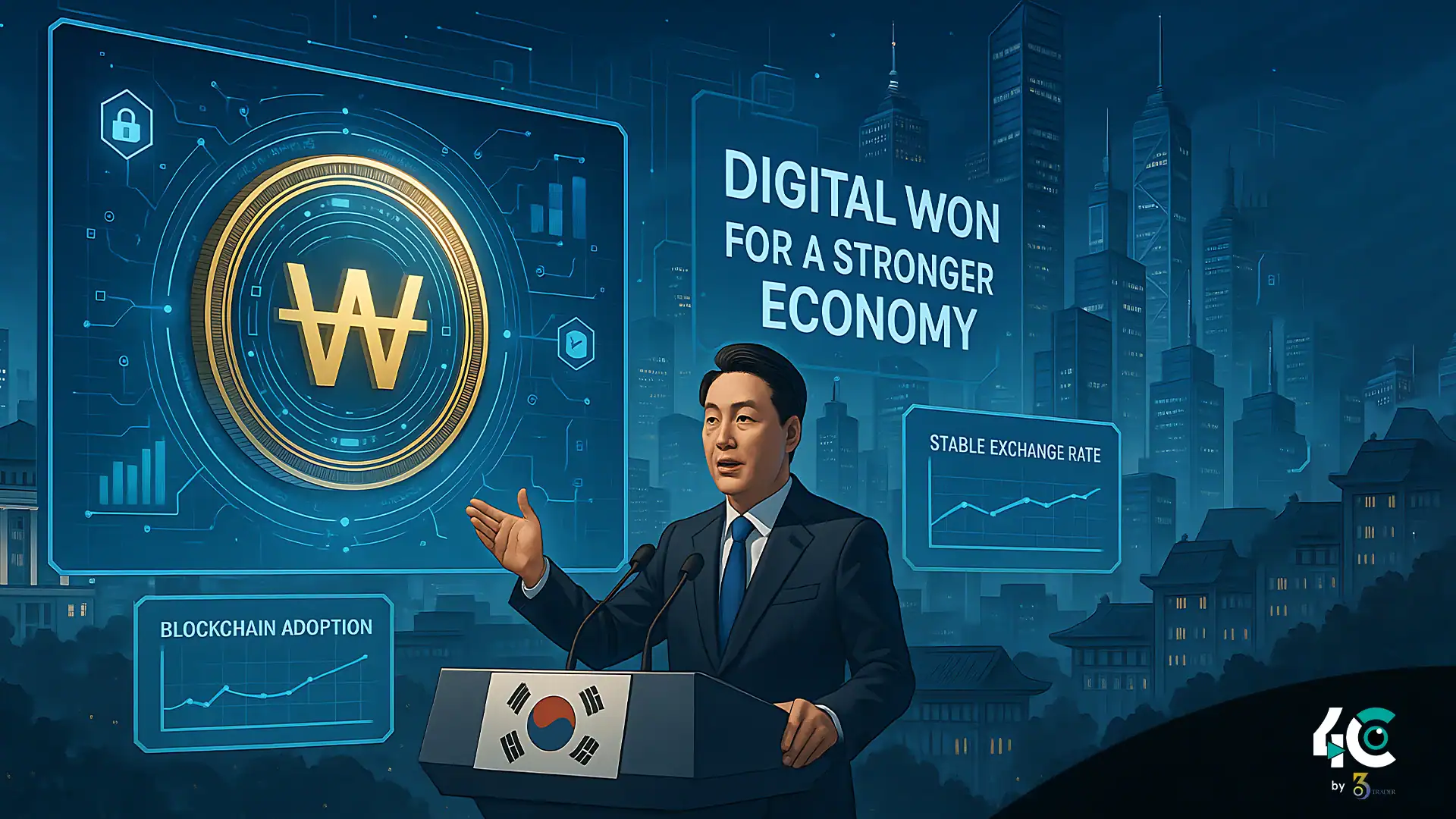Lee Jae-myung Advocates for Stablecoin Tied to Won to Strengthen National Authority
Lee Jae-myung of the Democratic Party, the leading candidate for the presidency in South Korea, has a plan to issue a Korean won-pegged stablecoin. The goal of the initiative is to stop national capital outflows and lessen dependence on stablecoins like USDT and USDC issued by foreign nations for the country.
At a recent forum on policy issues, Lee explained how a local digital currency can support the economy and safeguard national wealth. He pointed out that in the first quarter of 2025, almost $40.8 billion (56.8 trillion won) left the country’s crypto exchanges, with about half linked to foreign stablecoins.
Lee is warning that a market for won-backed stablecoins must be created to prevent the outflow of national wealth through dollar-pegged stablecoins.
At present, South Korea stops local exchanges from issuing won-backed stablecoins due to regulatory prohibitions. Hence they use foreign alternatives. Lee’s plan seeks to turn this around by creating a regulatory framework that allows local stablecoin issuance under the government’s guidance.
Lee’s plan, which will also include legalizing spot crypto ETFs, is part of a digital finance plan. If , South Koreans will be able to trade crypto assets, such as bitcoin, on stock exchanges. Lee thinks will help the youth that are drawn to digital assets as a way of creating wealth.
Lee also supports institutions getting involved in the cryptocurrency market along with crypto ETF legality. He recommends letting big players like the National Pension Fund invest in digital assets after ensuring the prices stabilize. There will be low campaign to ensure that trading is safe.
While crypto investors support Lee’s proposal, economists are worried about it. Shin Bo-sung, a researcher from the Korea Capital Market Institute, has warned that introducing stablecoins could undermine monetary policy by allowing a private entity to create money. According to him, stablecoins function just like banks that issue money, which can’t be overlooked.
Recently, the Democratic Party launched a Digital Asset Committee to respond to the growing interest and regulatory challenges in the sector. The committee is working on clarifying legal issues and enabling the rapid growth of South Korea’s crypto economy by formulating effective policies.
With both presidential candidates supporting crypto reform, digital assets are set to be a major issue in the South Korean election.



























